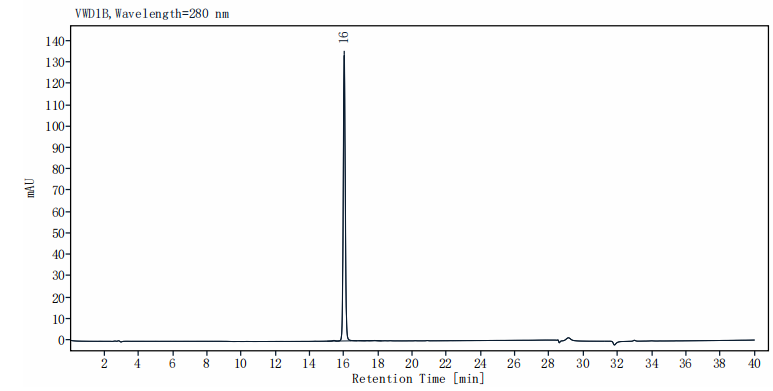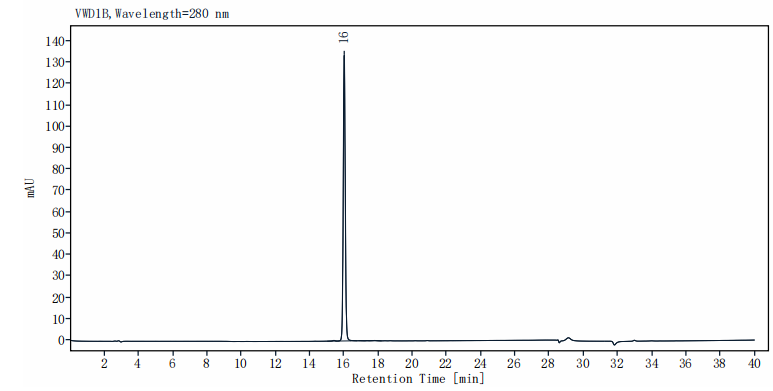Measured by its ability to induce IL-6 secretion by NIH‑3T3 mouse embryonic fibroblast cells. The EC50 for this effect is 4.6-9.9 ng/mL.
Product Details
Product Details
Product Specification
| Species | Mouse |
| Synonyms | Interleukin-36 gamma, Interleukin-1 family member 9 (IL-1F9) |
| Accession | Q8R460 |
| Amino Acid Sequence | Gly13-Ser164 |
| Expression System | E.coli |
| Molecular Weight | 17 kDa (Reducing) |
| Purity | >95% by SDS-PAGE and HPLC. |
| Endotoxin | <0.1EU/μg |
| Conjugation | Unconjugated |
| Tag | No Tag |
| Physical Appearance | Lyophilized Powder |
| Storage Buffer | PBS, pH7.4 |
| Reconstitution | Reconstitute at 0.1-1 mg/ml according to the size in ultrapure water after rapid centrifugation. |
| Stability & Storage | ·12 months from date of receipt, lyophilized powder stored at -20 to -80℃. |
| Reference | Nat Immunol. 2024 Apr;25(4):581-582. |
Background
Interleukin-36γ (IL-36γ, formerly IL-1F9) is the most intensively studied agonist of the IL-36 sub-family within the IL-1 cytokine super-family. The mature mouse protein is a 17–18 kDa, non-glycosylated, β-trefoil monomer that lacks both a signal peptide and a pro-domain; maximal bio-activity is gained after N-terminal truncation by neutrophil proteases. In the mouse, IL-36γ is constitutively produced by keratinocytes, Langerhans cells, gastric chief/parietal cells and lung epithelium, positioning it as a front-line alarmin at barrier surfaces. Transcription is rapidly up-regulated by TLR3/4 ligands, IL-1α/β, TNF-α or IL-17, and the cytokine is released passively during pyroptosis or necroptosis. Once in the extracellular space, IL-36γ engages the heterodimeric receptor complex IL-1Rrp2/IL-1RAcP expressed on keratinocytes, dendritic cells and macrophages, driving MyD88-dependent activation of NF-κB and MAPKs (p38, JNK, ERK). The ensuing transcriptional programme includes IL-6, IL-23, TNF-α, CXCL1, CXCL2, CXCL8 and β-defensin-3, translating into neutrophil influx, Th1/Th17 polarisation and antimicrobial peptide release.
Picture
Picture
Bioactivity
SDS-PAGE
2μg (R: reducing condition, N: non-reducing condition).
RP-HPLC

>95% as determined by RP-HPLC.


